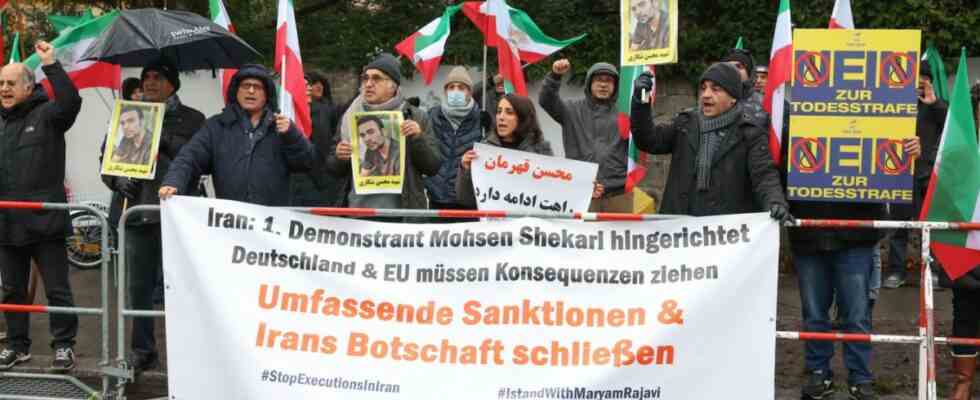A few weeks ago, the political scientist Azadeh Zamirirad from the Science and Politics Foundation warned in the SZ that the Iranian diaspora was threatening to disintegrate. Anyone who expresses doubts about the imminent fall of the regime could be the target of “defamation, hate campaigns and even death threats” and the greatest conceivable affront, “accused of being an apologist or agent of the Islamic Republic”.
Now she became herself – again? – The target of such allegations, and with them other participants, of an Iran event of the Friedrich Ebert Foundation, which was planned for Friday in Berlin and which will now not take place. A “coordinated smear and hate campaign” on social media, as well as “threats that call into question the safety of everyone involved” forced the organizers to cancel the conversation, they say in a statement, which the foundation published on its website on Thursday. In addition to Zamirirad, the FES scholarship holder Bahar Oghalai and the journalist Omid Rezaee were invited. Svenja Schulze, Minister for Economic Cooperation, had promised to come. The political scientist David Jalilvand, founder of the Orient platform, was planned as moderator matters.
Not everyone at the foundation is happy with the cancellation
One email particularly worried the organizers. “It said: ‘You will no longer have peace here, you will no longer dare to go out on the street,'” says Elisabeth Braune, head of the Ebert Foundation’s department for the Near and Middle East: “We will file a complaint against this email. ” After the start of the campaign, the foundation planned admission and identity checks, and also held talks about the security situation with the State Criminal Police Office: “The cancellation was then our decision alone,” says Braune. Not everyone at the foundation is “satisfied” with it, she admits.
The escalation in the past few days can be read on social media. In the beginning it was about the demand to uninvite individual participants like Zamirirad and Jalilvand, later it was a blanket statement about “Lobbyists of the mullah murder regime” the speech, which the foundation should not offer a platform under any circumstances. Above all, an abbreviation was often used, NIAC, National Iranian American Council, in the eyes of the social media prosecutors the extended arm of Tehran. At least Zamirirad and Jalilvand belonged to the NIAC, such a common claim.
Cologne-based Islamic scholar Katajun Amirpur believes that the general suspicion against the participants is unfounded: “I wouldn’t share that assessment.”
Braune dismisses the suspicion that the debate would have given regime supporters a stage. She doesn’t know anything about a possible NIAC connection between Zamirirad or Jalilvand: “I don’t think the critics distinguish between activists and analysts.” However, according to Braune, there will be a discussion between the minister and the participants of the panel in the near future. Zamirirad and Jalilvand have already confirmed.
A solidarity demonstration with the Iranian protesters in front of the Ebert Foundation is planned for Friday afternoon.

